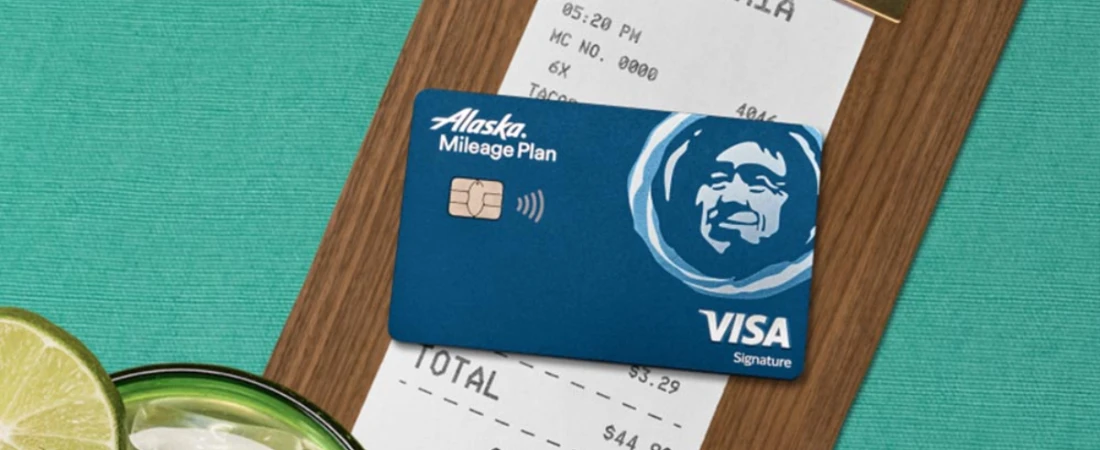
Frequent flyer miles are a coveted reward for travelers who consistently fly with specific airlines or alliances. These miles can open doors to free flights, seat upgrades, and premium perks. But one crucial detail that often goes unnoticed is that frequent flyer miles can expire. For the unaware, miles expiration can be a frustrating experience—imagine accumulating thousands of points only to discover they vanished overnight due to inactivity or a lapsed account.
Miles expiration varies widely across airlines. Some programs are generous and let your miles remain active indefinitely as long as your account shows some form of activity. Others follow stricter policies and wipe out your entire balance if you don’t meet specific requirements within a certain timeframe—sometimes as short as 18 months.
This post explores the facts behind miles expiration. Instead of vague generalizations, we’ll break down the exact policies for major U.S. and international airlines, the specific triggers that lead to expiration, and practical strategies to prevent it. You’ll also learn how to revive expired miles in some cases—yes, that’s possible with select programs.
If you’re a casual traveler who flies once a year, or a business traveler racking up miles every week, knowing the expiration rules can save you from losing the rewards you’ve earned. Understanding how miles expiration works is crucial if you want to maximize your benefits and make every mile count.
Let’s dive deep into the mechanics, policies, and preservation strategies of airline miles so you can manage your loyalty rewards like a pro.
Airline miles are typically issued through loyalty programs, and while they feel like currency, they don’t carry the same permanence. Unlike money in your bank account, miles often come with an expiration date. But how exactly do airline miles expire?
The most common reason for expiration is inactivity. Many airlines have a time-based inactivity rule, such as 12, 18, or 24 months. If there’s no “qualifying activity” during that time, your miles expire.
For example:
American Airlines AAdvantage miles expire after 24 months of inactivity.
United MileagePlus used to have a similar policy but now has no expiration for active accounts.
Delta SkyMiles also don’t expire, regardless of activity.
Air Canada Aeroplan expires after 18 months of inactivity.
Qualifying activity can include:
Booking a flight
Redeeming miles
Earning miles through partners (hotels, car rentals, credit cards)
Buying miles
Donating miles
Some programs enforce hard expiration dates, meaning miles expire a set number of months or years after they are earned—regardless of activity.
For instance:
Singapore Airlines KrisFlyer miles expire 36 months after accrual, even if your account is active.
ANA Mileage Club (Japan’s All Nippon Airways) follows the same strict rule: 36 months.
This model is less forgiving and poses challenges for occasional flyers. No matter how active you are, once the expiration date hits, your miles are gone unless used or extended through very specific methods.
To summarize:
Activity-Based Expiry: You can reset the expiration clock with any eligible activity. (Examples: AAdvantage, Lufthansa Miles & More)
Fixed Expiry Programs: No extension options; you must use miles before they expire. (Examples: KrisFlyer, ANA)
Understanding the type of expiration your program uses is critical. Some airlines may use a combination, where bonus miles expire sooner than status miles, or where certain promotional miles have different rules altogether.
Make sure to check the terms and conditions of your loyalty program to avoid surprises. Each airline outlines the specifics in its member agreement, usually under "Mileage Expiration" or "Program Rules."

Let’s explore the actual miles expiration policies of major airlines across the U.S. and international carriers. This breakdown gives you concrete, up-to-date data to protect your rewards.
Delta Air Lines (SkyMiles)
Expiration: None.
Details: SkyMiles never expire, even with no account activity.
United Airlines (MileagePlus)
Expiration: None (since 2019).
Details: Miles are valid for life as long as the account remains open.
American Airlines (AAdvantage)
Expiration: 24 months of inactivity.
How to Reset: Any earning or redemption activity.
Alaska Airlines (Mileage Plan)
Expiration: 24 months of inactivity.
How to Reset: Flying, earning through partners, or redeeming miles.
JetBlue Airways (TrueBlue)
Expiration: None.
Details: Points never expire, though the account may be closed if inactive for long periods.
British Airways (Avios)
Expiration: 36 months of inactivity.
How to Reset: Earning or spending any Avios.
Lufthansa (Miles & More)
Expiration: 36 months, even with activity (unless you hold elite status or have a Miles & More credit card).
Exception: Frequent Travellers or Senators don’t face expiration.
Air France/KLM (Flying Blue)
Expiration: 24 months of inactivity.
How to Reset: Flying with partner airlines or using the co-branded credit card.
Singapore Airlines (KrisFlyer)
Expiration: 36 months from the date of accrual (strict, non-extendable for regular members).
Exceptions: Elite members may request extensions.
Emirates Skywards
Expiration: 3 years after miles are earned.
How to Extend: Pay a fee to extend miles for 12 more months (up to 50,000 miles per year).
Qatar Airways (Privilege Club)
Expiration: 36 months of inactivity.
How to Reset: Earn or spend Qmiles before expiration.
This factual comparison empowers you to take the right steps based on your preferred airline. Always double-check airline websites for updates, as expiration policies can change.

Now that you know how miles expire, it’s time to learn how to prevent that from happening. The good news? Most programs make it relatively easy to keep your miles active—as long as you know what qualifies as activity.
This is the most obvious and direct way to keep your account active. If you can’t book a trip, look into partner airlines. For instance, using British Airways miles to book a Qatar Airways flight counts as activity for Avios.
Credit card spending is a powerful tool. Airline credit cards like:
AAdvantage® Aviator Red
United Explorer Card
Delta SkyMiles® Gold
will automatically refresh your mileage expiration date when you make purchases. Even a $1 charge can count.
Most major airlines have shopping portals that offer miles for purchases with partnered brands like Apple, Macy’s, and Nike. For example, logging into the United MileagePlus Shopping portal and buying something small refreshes your mileage expiration date.
Join your airline’s dining rewards program. Make a small purchase at a participating restaurant with a linked credit card, and miles will be credited.
Examples:
AAdvantage Dining
MileagePlus Dining
Delta SkyMiles Dining
Many programs let you donate miles to charity partners or buy miles for yourself or others. These actions count as activity for most U.S. carriers.
Yes, even subscribing to a magazine or taking a survey on an airline partner’s site can earn miles and reset your expiration clock.
Sites like e-Rewards or Rewards for Opinions are partnered with airlines like American, Delta, and United.
With airlines like JetBlue or British Airways, you can transfer miles to family members. This counts as activity and prevents expiration for both sender and receiver.
Book a hotel via the airline’s portal or rent a car through a partner (like Hertz or Avis), and you’ll earn miles that count toward activity.
In short, there’s no need to let your miles expire due to inactivity. A small action every 6–12 months can keep your miles intact for future travel.

Unfortunately, once miles expire, it’s not always easy—or even possible—to get them back. However, some airlines offer options to reinstate expired miles for a fee or under certain conditions.
American Airlines offers a Buy Back Miles program. You can reinstate miles within 18 months of expiration by paying a fee based on how many miles you want to recover. For example, reinstating 10,000 miles could cost $150+.
United used to offer reinstatement but now has no expiration policy, so the issue no longer applies.
Delta has no expiration, so there's no need to recover anything.
Singapore Airlines: Strict policy. Expired miles are lost unless you’re a PPS Club member, who may request a short extension.
Emirates: You can pay to extend miles for 12 more months at a cost of $20 per 1,000 miles.
Lufthansa Miles & More: No reinstatement unless you have elite status. Basic members lose expired miles permanently.
Before paying to recover miles, consider their real-world value. Most frequent flyer miles are worth about 1–1.5 cents per mile. If the reinstatement fee outweighs the potential flight or upgrade value, it may not be worth it.
For example:
25,000 expired miles might net you a domestic roundtrip flight valued at $350.
If the reinstatement fee is $300, you’re better off buying a ticket outright.
Some airlines may offer a grace period. If your miles expired recently and you contact customer service promptly, they might restore the balance as a one-time courtesy. It never hurts to ask.
Key Tip: If you're dealing with upcoming expiration and don't have time to take action, consider donating a small amount of miles—this is often the fastest way to reset the timer.

Frequent flyer programs are valuable but come with complex rules, and miles expiration is one of the most critical to understand. Losing miles due to inactivity or fixed expiration can be frustrating and costly—especially when those miles could have funded a free trip or a premium cabin upgrade.
The reality is that most expiration rules are preventable with a little awareness and simple, periodic actions. Whether it’s making a small purchase through a shopping portal, linking a credit card to a dining program, or even transferring miles to a family member—these actions can extend the life of your miles indefinitely in many programs.
Some airlines, like Delta, United, and JetBlue, have made things easier by eliminating expiration policies altogether. But many international carriers, particularly in Asia and Europe, continue to enforce strict timelines—some of which are non-negotiable. That’s why knowing the difference between inactivity-based and fixed-date expiration is vital.
Moreover, even if your miles do expire, there may be options to recover them for a fee or through status-based extensions. However, recovery should always be weighed against the potential value of those miles to avoid overpaying.
In summary, treat your frequent flyer miles like currency. Monitor their expiration dates, maintain occasional activity, and take proactive steps to safeguard your rewards. With the right strategy, you’ll ensure your loyalty efforts pay off in the form of unforgettable travel experiences—not lost opportunities.
Lina Zhou is a globe-trotting travel writer from Chengdu, China. With a passion for hidden gems and cross-cultural experiences, she shares practical tips, visa guidance, and immersive stories from every corner of the world. When not exploring, she’s sipping tea while planning her next adventure.